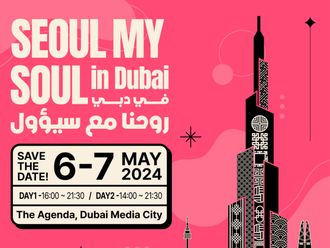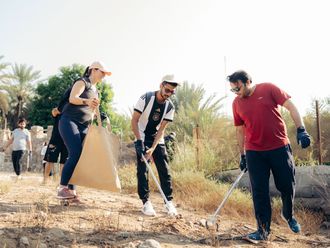After six days of vegetating in Damascus, waiting for the "concerned authorities" to grant us permission to cross the border into northern Iraq, my colleague and I boarded a small 40-seater plane bound for Kameshly, a city northeast of Syria.
"If it were left up to me, I would not have given you the permission," said an official at the Syrian Ministry of Information. "There are more than 200 applications from journalists who want to get in. It is very dangerous. If anything happens to you over there, the Syrian government will be held responsible."
Despite the odds, our man in Syria had managed to obtain the required three-digit access code, which was to be submitted at the border checkpoint.
"Now you can go, but you will need sturdier boots for the rough terrain. And you will stay in a military base. Take some food with you…" he said, grinning like a Cheshire cat.
My colleague and I were hanging on to his every word. Much has been made of the grave dangers looming in Kurdistan, and here was our contact, a former Peshmarga (partisan fighter), giving us pointers.
Suddenly, he burst out laughing: "I am kidding you fools! There are proper cities in Kurdistan. You will stay at a five-star hotel, and you will have more food than you can eat!" So began our journey into Kurdish-controlled northern Iraq.
In Kameshly, we were greeted by a Kurdistan Democratic Party (KDP) gofer, who was tasked with helping us cross the border. We drove for two hours past the oilrigs and into the city of Malakia.
In Semalga, a small town bordering the Tigris River, our guide took our passports and access code, and disappeared. We waited with bated breath.
Our crossing was secured by the three-digit code, but the process depended on the mood of the checkpoint official. Ten minutes later, our guide reappeared. "Kullu shi tamam!" (Everything is OK). We had a glass of tangy tea with the checkpoint official, chitchatted over the weather, and proceeded to the riverbank.
Our luggage was loaded onto a rickety wooden speedboat, and we were invited to embark. Our guide instructed us not to take photos of the Syrian side, and to strictly direct our cameras toward Iraq.
The speedboat sliced across the Tigris River, and within moments, we had entered Pshkhabor, the first town under Kurdish jurisdiction on the border of Syria and northern Iraq.
Goodbye
There was a queue of travellers waiting for our speedboat in Pshkhabor. Among them, a woman with a baby swaddled in waterproof blankets, and a young couple dressed in stylish Western clothing. "They are from Europe, visiting their families here," explained our guide. "Now they are going back…"
The couple boarded the speedboat and as it glided away on the murky water, they waved goodbye to their homeland.
Gun-toting soldiers guarding the office of the "Travelling Directorate of Pshkhabor Foreigner Department" gave us the once-over. We were allowed to proceed.
The office was immaculate and equipped with all the modern amenities. Over another glass of sugary tea, the official in charge briefly inquired about the purpose of our visit, and issued an entry visa, which he did not stamp on our passports.
"We never stamp the passports," he assured. "But we are not receiving very many journalists these days. As you know, our neighbouring countries have made it very difficult."
A shiny white land-cruiser was waiting to take us into Arbil, a KDP stronghold. We were taken aback by this semblance of urban life. Had we expected a donkey-drawn carriage to take us to a rural village? Perhaps. Western media is rife with misconceptions about "Kurdistan".
Driving along the perfectly paved highway leading to the city of Dohuk, an important trade route to Turkey, we marvelled at the undulating hills and wide expanses of lush greenery.
Journalists covering the region have dwelt mostly on the matter of oil smuggling through the Turkish border, or the peshmarga soldiers' confrontations.
Little has been written of the staggering natural beauty of this region, and the rapid urban development, which Kurdish cities have undergone, since the UN Oil-for-Food programme was implemented in 1996.
In Dohuk, there are art galleries, cinemas, shops, beauty salons, and five-star hotels with swimming pools and tennis courts.
We moved on to Salahuddin, a village located half an hour away from Arbil. A KDP official met us on arrival, and gave us an overview of the situation. He offered to drive us to our hotel in Arbil in his sparkling red BMW.
Along the way, in the well-regulated traffic, he asked our opinion of Kurdistan – so far.
"You know it is not easy for journalists to enter. Our neighbouring countries don't want the world to know the reality on the ground. We have rebuilt our infrastructure, and we have access to the Internet. Most homes have satellite television. We lead a normal life. Is it hard to believe?"
Life goes on within the shadow of danger
After six days of vegetating in Damascus, waiting for the "concerned authorities" to grant us permission to cross the border into northern Iraq, my colleague and I boarded a small 40-seater plane bound for Kameshly, a city northeast of Syria.










